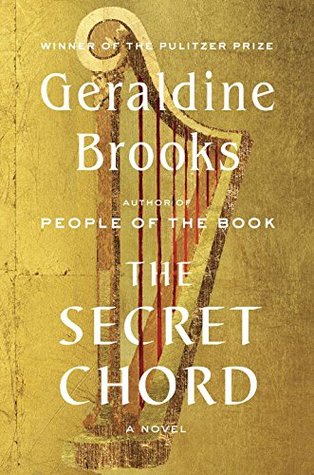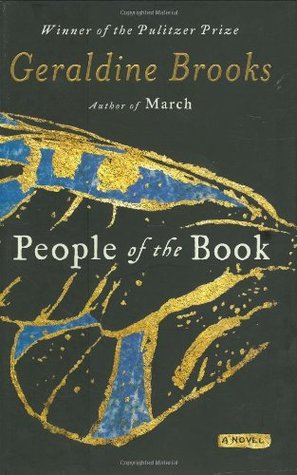There are a handful of authors for which I will immediately seek out their newly published books. Pulitzer-Prize winner Geraldine Brooks is one of them. When I got my notification from Goodreads that her new novel The Secret Chord would be released in October, I put it on reserve at my library and it was available for me the day it was released.
While I didn’t plan it this way, her novel happens to be the second novel that I’ve read in a row that could be classified as Biblical fiction. The Secret Chord covers the life of David from the Old Testament – from his time as a young boy to his ascension to the throne of Israel and on into his old age.

Anyone who has ever read much of the Old Testament knows that it contains all kinds of blood and guts, murder, sex, betrayal, spying, intrigue and other things that are not always for the faint of heart – and Brooks has definitely done her Old Testament research. She manages to paint David in a light that perfectly blends his greatness and his flaws-his achievements as a poet, musician, king, warrior, shepherd boy and his exploits on the battlefield and in the bedroom are all combined into a spellbinding story.
She takes artistic license only enough to further develop characters that are not fully developed in the Biblical account; however, Brooks still makes it her own story. I enjoyed the way it is told from the perspective of Nathan the Prophet – the only person who could get away with telling the King when he was wrong. Nathan’s prophecies come across a little like Professor Trelawney in the Harry Potter books but Brooks manages to make them work without making them campy.
Instead of including a passage from the more gory sections of the book, I’ll include one that covers the artistic and musical impact that David has on his kingdom:
This is what he heard: All the musicians he had brought to the city. All the singing men and women. All the children who had grown up with instruments in their hands and songs on their lips. His own music. His gift to the people now returned to him in magnificent abundance. He had made of his city an accidental choir, an unintended orchestra. The surge of sound rose and swelled. Then, for a long moment, all the notes came together, all the music of the heavens and the earth, combining at last into one sustained, sublime, entirely glorious chord.
Here are my posts about Brooks’ other novels:




